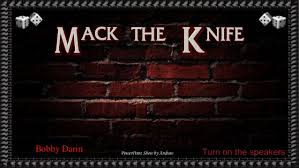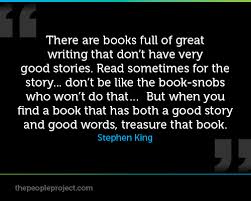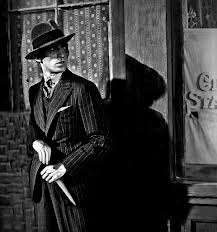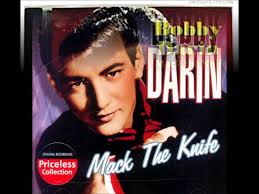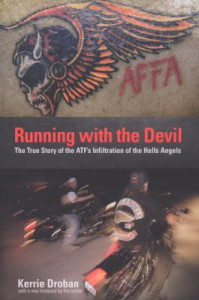 Kerrie Droban is an award-winning author and criminal defense attorney in Arizona. Kerrie has written many books like Running With The Devil – the true story of the US Bureau of Alcohol, Tobacco & Firearms takedown of the Arizona Hells Angels – and Vagos, Mongols, and Outlaws – the true story of Charles Falco’s infiltration of three deadly biker clubs. Here, Kerrie shares her fascinating expertise into understanding the mindset of organized criminal bikers in the outlaw motorcycle gang (OMG) scene.
Kerrie Droban is an award-winning author and criminal defense attorney in Arizona. Kerrie has written many books like Running With The Devil – the true story of the US Bureau of Alcohol, Tobacco & Firearms takedown of the Arizona Hells Angels – and Vagos, Mongols, and Outlaws – the true story of Charles Falco’s infiltration of three deadly biker clubs. Here, Kerrie shares her fascinating expertise into understanding the mindset of organized criminal bikers in the outlaw motorcycle gang (OMG) scene.
Kerrie, what’s the most surprising thing you learned about OMGs?
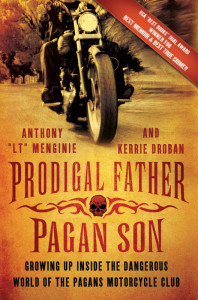 The allure of biker gangs is not the so-called “freedom” the lifestyle promises, not the illusion of disorder and reckless abandon it glamorizes, but an outlet for the bloodshed it offers. And it doesn’t matter to OMGs who they kill, only that they leave behind plenty dead.
The allure of biker gangs is not the so-called “freedom” the lifestyle promises, not the illusion of disorder and reckless abandon it glamorizes, but an outlet for the bloodshed it offers. And it doesn’t matter to OMGs who they kill, only that they leave behind plenty dead.
They meet, habitually, in public to discuss battle plans, share intelligence on rival members, regroup, report, and plan surveillance. Their sole reason for belonging, prospecting, and earning their coveted “Patch” is so that they can kill with purpose.
Many members are largely comprised of active and ex-military personnel and work a “day job” among us as pilots, stock brokers, car salesman etc…
Charles Falco? He lived a double life. What compels a guy like him to infiltrate three gangs and abandon the safety of the witness protection program?
It is a strange truism that it’s difficult to live “invisible.”
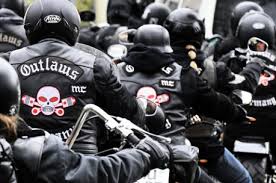 After infiltrating the Vagos, Charles Falco was placed in the Witness Protection Program but, without an identity and stripped of even a driver’s license and social security number, he could not stand the isolation. He had purpose and direction and a sense of doing good in the world when he infiltrated the Vagos; ‘protected” he became a “persona non grata” and essentially ceased to exist. That was his “reward” for his sacrifice and bravery.
After infiltrating the Vagos, Charles Falco was placed in the Witness Protection Program but, without an identity and stripped of even a driver’s license and social security number, he could not stand the isolation. He had purpose and direction and a sense of doing good in the world when he infiltrated the Vagos; ‘protected” he became a “persona non grata” and essentially ceased to exist. That was his “reward” for his sacrifice and bravery.
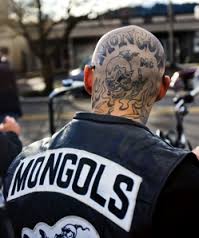 Many who work undercover experience the same kind of loneliness. They find it difficult to obtain meaningful employment, sustain relationships (because the spouse or significant other necessarily has to live in isolation with them) and often cannot discuss their past achievements. They return to the life they know – a life that has substance.
Many who work undercover experience the same kind of loneliness. They find it difficult to obtain meaningful employment, sustain relationships (because the spouse or significant other necessarily has to live in isolation with them) and often cannot discuss their past achievements. They return to the life they know – a life that has substance.
Charles volunteered to infiltrate two additional biker gangs – the Mongols and the Outlaws and, by so doing, became the single most successful private contractor in the world and the only one to have his investigations result in RICO convictions.
What about Vagos, Mongols, and Outlaws? You said you enjoyed writing this book the most?
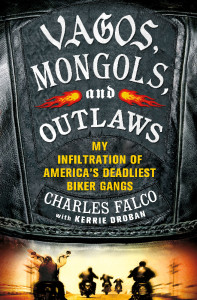 Charles Falco has a wonderful sense of humor and I thoroughly enjoyed working with him. Surprisingly, some of the funniest scenes to write involved his stint in San Bernardino’s Murder Unit.
Charles Falco has a wonderful sense of humor and I thoroughly enjoyed working with him. Surprisingly, some of the funniest scenes to write involved his stint in San Bernardino’s Murder Unit.
The jail had its own ridiculous hierarchy. Inmates were separated by race and had specific roles and rules and in many ways was more restrictive than the outside world. Charles deftly navigated this internal place even rising to the rank of “Key Holder” (King of the Killers). He had a “want to be” serial killer for a cellie who, though completely crazy and brutal, offered some of the most engaging and humorous dialogue of the book.
You’re a woman investigating and writing about a fringe male culture – outlaw gangs who despise women as part of their criminal culture. What’s that like?
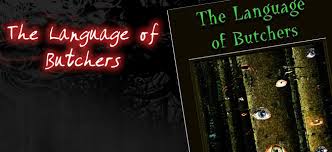 It isn’t really about being male or female. It’s about being a good listener. I was once asked an interesting question at a seminar, “How do you, as a woman, get inside the head of a biker? How do you feel what they feel and describe it in such vivid detail that it’s as if you are that person and have witnessed their lives?” I have a unique ability to get inside people’s heads and feel what they feel and in so doing, bring the reader into their experience. If you tell a good story, people – even bikers – want to talk to you. They want you to be their voice.
It isn’t really about being male or female. It’s about being a good listener. I was once asked an interesting question at a seminar, “How do you, as a woman, get inside the head of a biker? How do you feel what they feel and describe it in such vivid detail that it’s as if you are that person and have witnessed their lives?” I have a unique ability to get inside people’s heads and feel what they feel and in so doing, bring the reader into their experience. If you tell a good story, people – even bikers – want to talk to you. They want you to be their voice.
#
 Kerrie M. Droban is an award winning author and criminal defense attorney in Phoenix, Arizona. A graduate of The Johns Hopkins University Writing Seminars and the University of Arizona, Kerrie studied playwriting with Edward Albee and poetry with Peter Sacks, Carolyn Kizer, and Joy Harjo.
Kerrie M. Droban is an award winning author and criminal defense attorney in Phoenix, Arizona. A graduate of The Johns Hopkins University Writing Seminars and the University of Arizona, Kerrie studied playwriting with Edward Albee and poetry with Peter Sacks, Carolyn Kizer, and Joy Harjo.
Her collection of poems entitled, The Language of Butchers, earned numerous awards including the Academy of American Poets Award, the New Letters International Poetry Award, the Poet Lore Award and the Amelia Encore Award.
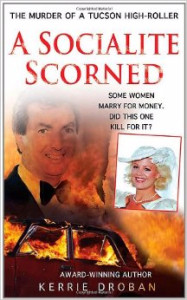 Additionally, Droban’s true crime Running with Devil: The True Story of the ATF’s Infiltration of the Hells Angels and Prodigal Father Pagan Son: Growing Up Inside the Dangerous World of the Pagans Motorcycle Gang has received critical acclaim and earned the 2008 and 2011 USA News National Book Award for Best True Crime and Best Autobiography.
Additionally, Droban’s true crime Running with Devil: The True Story of the ATF’s Infiltration of the Hells Angels and Prodigal Father Pagan Son: Growing Up Inside the Dangerous World of the Pagans Motorcycle Gang has received critical acclaim and earned the 2008 and 2011 USA News National Book Award for Best True Crime and Best Autobiography.
Kerrie has appeared on national television in A & E’s Gangland: Behind Enemy Lines and numerous local television and radio shows as an emerging expert on motorcycle gangs and the pathology of the criminal mind.

